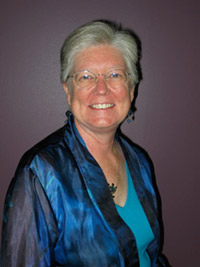Educator Conversations: Jazz at Lincoln Center Orchestra with Wynton Marsalis
Editor’s note: This post is a part of a series of conversations between educators in the K-12 community. Educators will offer suggestions and answer questions about integrating UMS School Day Performances or the arts into classroom curriculum, as well as share advice on organizing a field trip to UMS. To volunteer to be a Teacher Lobby Moderator e-mail umsyouth@umich.edu. Or, check out other Educator Conversations.
This week’s questions:
- What does Jazz music have in common with the music of Mozart and Haydn?
- How does Jazz music reflect the values of African-American culture from which it came?
- How do you find yourself improvising in your life?
 This week’s moderator: Linda Jones. Linda has taught music, math and media in the Ypsilanti Schools from 1999 to 2012. She is currently director of the Ann Arbor Civic Chorus. She has taught jazz history, composition, improvisation and performance as well as acting and creative movement at the elementary level and collaborated with bassist Paul Keller, drummer Sean Dobbins, and pianist Ellen Rowe. She has training as an Orff Music Educator and currently serves as Treasurer to the Greater Detroit Orff Schulwerk Association. She has presented workshops on Jazz improvisation and Composition through Garage Band.
This week’s moderator: Linda Jones. Linda has taught music, math and media in the Ypsilanti Schools from 1999 to 2012. She is currently director of the Ann Arbor Civic Chorus. She has taught jazz history, composition, improvisation and performance as well as acting and creative movement at the elementary level and collaborated with bassist Paul Keller, drummer Sean Dobbins, and pianist Ellen Rowe. She has training as an Orff Music Educator and currently serves as Treasurer to the Greater Detroit Orff Schulwerk Association. She has presented workshops on Jazz improvisation and Composition through Garage Band.
Q: What does Jazz music have in common with the music of Mozart and Haydn?
They both use western harmonic progressions, they both use the same instruments, especially percussion, winds and brass and bass violins. They both have soloists and ensembles. Improvisation is at the heart of Jazz and traditionally there was also improvisation in Baroque performances.
What else can you add to this list?
Q: How does Jazz music reflect the values of African-American culture from which it came?
Everyone has a voice and contributes equally to the ensemble.
Everyone has a chance to shine and show their individual talent.
Collaboration is very important.
Lyrics reflect the reality of life, the loves and struggles, the hope and the suffering.
Talent is mentored and held to a high standard.
Rhythm is the basis of music that cooks, this rhythm flows through all of African-American life.
What else would you include in this list?
Q: How do you find yourself improvising in your life?
I find that teaching is filled with chances to improvise. Lesson plans are only an outline, the craft is in fitting those plans with the needs of the learners present on that day. Any time I am leading a choral rehearsal, I am improvising wildly as I find ways to help the choir improve. Driving also presents plenty of chances to improvise, especially if different routes are possible to get to the destination.
How do you improvise?
Do you have questions or comments for Linda about his approach to this performance or about teaching through performance more broadly? Share your responses or questions in the comments section below.


